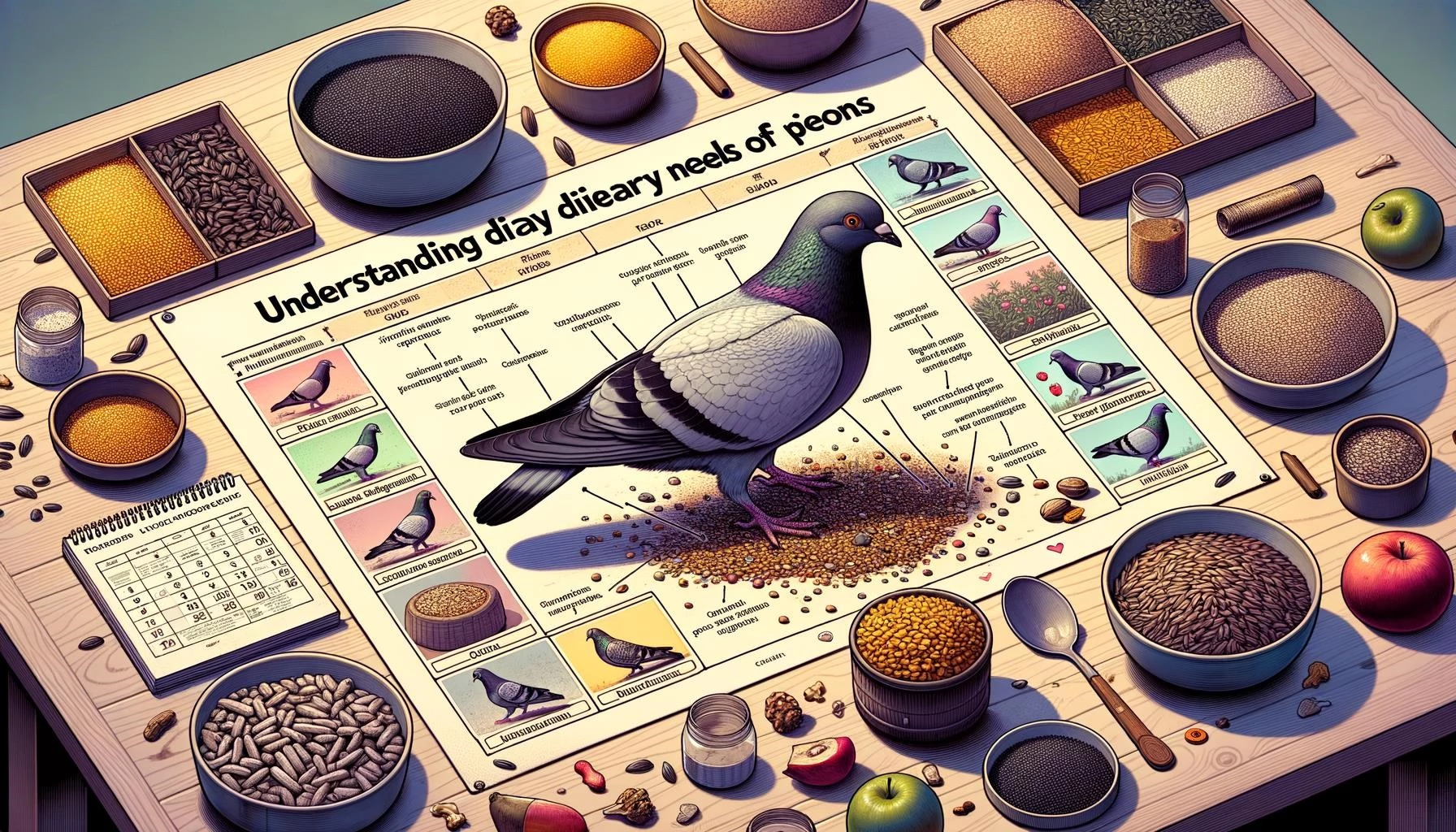Feeding pigeons is an activity that many people enjoy, whether it be in urban environments or in pigeon racing. However, to ensure the health and well-being of these birds, it is important to have proper education on pigeon feeding. This includes understanding their dietary needs, choosing the right food, and implementing a consistent feeding schedule. In this article, we will explore the key aspects of education on pigeon feeding.
Key Takeaways
- Pigeons require a diverse and balanced diet to stay healthy and happy.
- A premixed bag of pigeon pellets or pigeon feed generally provides the perfect nutritional balance for pigeons.
- Feeding pigeons a variety of food sources that offer necessary nutrition is essential.
- Timing and consistency in feeding are also important for maintaining optimal weight and performance.
Pigeon Dietary Needs
Pigeons have specific dietary needs that should be met to ensure their health and well-being. A diverse and balanced diet is crucial for their overall health and happiness. Their natural diet includes berries, seeds, fruits, nuts, and vegetables. In urban environments or when kept as pets, their diet can consist of a mixture of seeds, fruits, nuts, and vegetables provided by their owners. It is important to provide a variety of food sources to meet their nutritional requirements.
Additionally, during the first week of their life, baby pigeons rely on pigeon milk produced by the crop tissue. Pigeon milk is characterized by high concentrations of proteins and lipids, and it plays a crucial role in their growth and development.
Choosing the Right Food
When feeding pigeons, it is important to choose the right food that provides them with the necessary nutrition. A premixed bag of pigeon pellets or pigeon feed is a convenient option as it generally contains the perfect nutritional balance for pigeons. These blends are designed to meet the dietary requirements of pigeons and offer a rich source of essential nutrients.
Additionally, offering a variety of fruits, vegetables, and seeds can supplement their diet and provide added nutrition. However, it is crucial to avoid offering foods that could be harmful to pigeons, such as those high in salt or sugar. It is recommended to avoid human food leftovers and stick to appropriate pigeon-friendly options.
Feeding Schedule and Consistency
In addition to providing the right food, establishing a structured feeding schedule is important for pigeons. A consistent feeding routine helps pigeons maintain optimal weight and performance. A sample feeding schedule for young racing pigeons, for example, includes a mixture of grains, legumes, and seeds in the morning to provide energy for training sessions.
Consistency in feeding helps strengthen the bond between pigeons and their owners. Pigeons are intelligent creatures that thrive on routine. By establishing a consistent feeding schedule, you can not only ensure their physical well-being but also create a sense of security and trust between you and the birds.
It is also important not to overfeed pigeons. Feeding them an excessive amount of food can lead to health issues, such as obesity. Monitoring their food intake and adjusting the amount accordingly is crucial for maintaining their well-being.
Conclusion
Feeding pigeons is a rewarding activity that allows us to connect with nature and contribute to the well-being of these birds. By understanding their dietary needs, choosing the right food, and implementing a consistent feeding schedule, we can provide a safe haven for pigeons to thrive in urban environments or racing competitions. Remember, a little effort goes a long way in ensuring the health and happiness of these avian companions.









